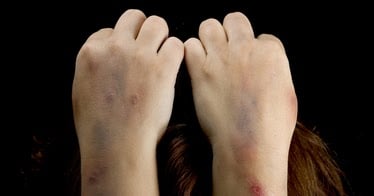A new study of 665 young people in the third, sixth, and ninth grades finds patterns of nonsuicidal...
Treatment for Child Anxiety Disorders Beneficial, but Needs to Be Longer, More Intensive, Study Finds
 |
The report of the study was published online yesterday in JAMA Psychiatry. It was conducted by Golda Ginsburg, Ph.D., of the Division of Child and Adolescent Psychiatry in the Department of Psychiatry and Behavioral Sciences at Johns Hopkins University School of Medicine, and colleagues. Their findings about relapse rates are particularly important, the researchers pointed out, because pediatric anxiety disorders "are considered gateway disorders in that they predict adult psychiatric problems."
They evaluated 288 patients from the Child and Adolescent Anxiety Multimodal Study (CAMS), which was sponsored by the National Institute of Mental Health. Subjects' average age at baseline was 11 years. Overall, 46.5% of the participants were in remission at an average of six years later. However, 52% of children who responded to treatment and 37.6% of those who did not respond were in remission.
Those early treatment responders were also more likely to have less-severe anxiety symptoms and higher functioning, regardless of treatment type (cognitive-behavioral therapy, medication, or a combination), said Ginsburg and colleagues. Once patients randomized to placebo were removed from the analysis, responder status predicted only lower anxiety severity scores. Male participants and those with better family functioning and higher socioeconomic status fared better than other patients, noted the authors.
For a review of state-of-the-art psychiatric care for children and adolescents and research developments in the field, see the recently revised second edition of the Clinical Manual of Child and Adolescent Psychopharmacology from American Psychiatric Publishing. Also see the report "Childhood Separation Anxiety and the Pathogenesis and Treatment of Adult Anxiety" in the January American Journal of Psychiatry.
(Image: Sunabesyou/Shutterstock.com)





